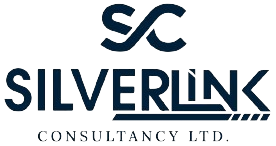Transitioning into a project management career from a non-project role is a smart move that can open up new opportunities for growth and leadership. Many professionals from diverse backgrounds—such as marketing, engineering, finance, or operations—have successfully made this switch by leveraging their existing skills, gaining relevant knowledge, and demonstrating their capabilities in managing projects. Here are some concise tips and strategies to help you make the transition:
1. Identify Transferable Skills
Start by identifying skills from your current role that align with project management. Skills like leadership, communication, problem-solving, budgeting, and time management are highly valuable in project management. Highlight these skills on your resume and in interviews to show how your experience is relevant.
2. Gain Project Management Knowledge
Familiarize yourself with the basics of project management, including methodologies like Agile, Scrum, Waterfall, and Kanban. Read books, take online courses, or attend workshops to build a foundational understanding. Understanding project management tools such as Asana, Trello, or Microsoft Project can also be beneficial.
3. Obtain a Certification
Earning a certification, such as the Certified Associate in Project Management (CAPM) or the Project Management Professional (PMP), can significantly boost your credibility. Certifications show potential employers that you have a solid understanding of project management principles and are committed to the field.
4. Start Small with Projects in Your Current Role
Look for opportunities to manage small projects within your current role or department. This could involve organizing a team event, leading a product launch, or improving a process. Demonstrating your ability to successfully manage projects will build your experience and confidence.
5. Network with Project Management Professionals
Connect with project managers in your organization or join professional groups such as the Project Management Institute (PMI). Networking can provide you with insights into the role, potential job openings, and mentorship opportunities to guide your transition.
6. Tailor Your Resume and Cover Letter
Highlight your project management experience—whether formal or informal—on your resume. Focus on achievements that demonstrate your project management capabilities, such as leading teams, managing budgets, or delivering results on time. Use project management terminology to align with the industry standards.
7. Be Open to Entry-Level Project Management Roles
Consider applying for entry-level project management positions, such as Project Coordinator or Project Assistant. These roles provide valuable exposure to project management practices and can be a stepping stone to more advanced positions.
8. Show Your Willingness to Learn and Adapt
Project management is a dynamic field that requires continuous learning and adaptation. Show potential employers that you are eager to grow by staying updated with the latest trends, tools, and methodologies in project management.
By strategically leveraging your existing skills, gaining relevant knowledge, and demonstrating your commitment to the field, you can successfully transition into a rewarding career in project management.



